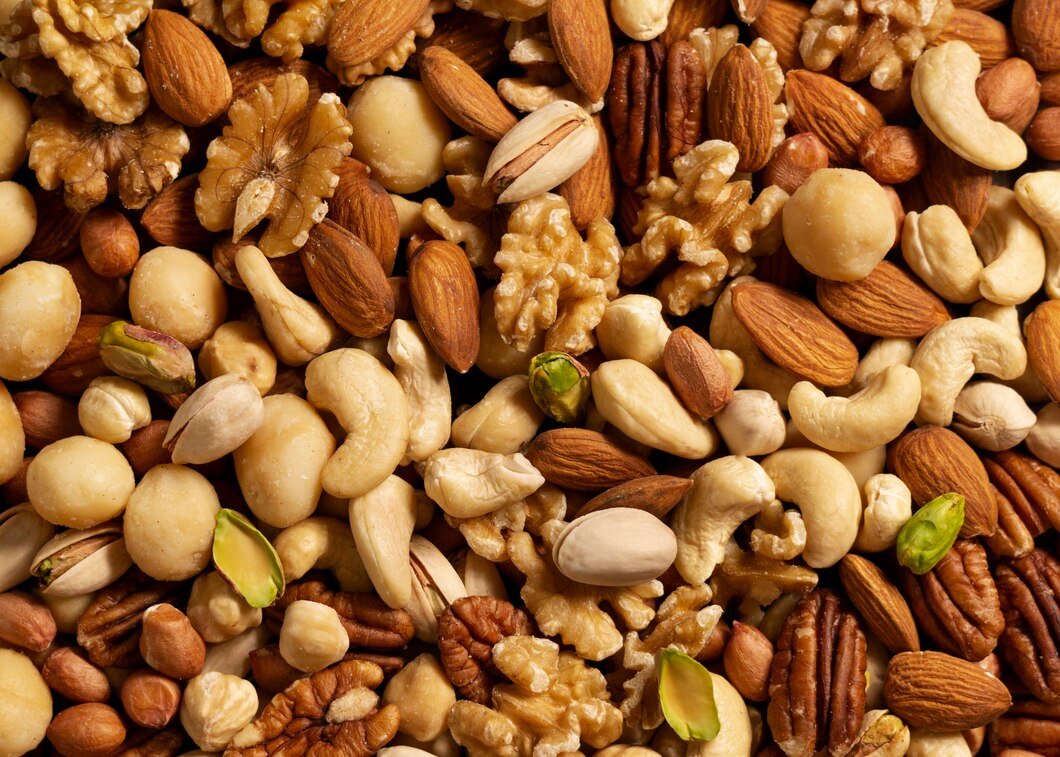Nut allergies are among the most common food allergies and can lead to serious allergic reactions, ranging from mild symptoms like hives to more severe conditions such as anaphylaxis. For South Africans with nut allergies, it’s essential to avoid foods that contain nuts or may have been contaminated with nuts during processing. Here’s a list of 20 foods that those with nut allergies should steer clear of.
- Nut butters like peanut butter and almond butter are popular spreads in South Africa, but they are off-limits for those with nut allergies. Even other nut-based butters, such as cashew or hazelnut spreads, should be avoided.
- Traditional trail mixes often include a variety of nuts such as almonds, walnuts, and cashews, making them unsafe for those with nut allergies.
- Many granola bars contain nuts for added crunch and flavor. Always check labels carefully, as even those marketed as nut-free may be manufactured in facilities that handle nuts.
- Some breakfast cereals, especially those with added clusters or granola, may contain nuts or traces of nuts. Popular options like muesli often include almonds, so it’s essential to choose nut-free alternatives.
- Traditional pesto is made with pine nuts, making it unsafe for those with nut allergies. Opt for a nut-free version made with seeds or other alternatives.
- Nougat, this sweet treat often enjoyed in South Africa, contains nuts like almonds or pistachios. Avoid nougat entirely unless you’re sure it’s nut-free.
- Cakes, cookies, and pastries may be made with nuts like walnuts, pecans, or almonds. Even if nuts aren’t a visible ingredient, cross-contamination is common in bakeries.
- Many chocolate bars and candies contain nuts or nut-based fillings. Even if nuts are not listed in the ingredients, cross-contamination is possible if they are made in factories that process nuts.
- While some ice cream flavors don’t contain nuts, others, like peanut butter or almond-based flavors, do. Additionally, there’s a high risk of cross-contact with other flavors in ice cream shops.
- Energy bars are often made with nuts such as peanuts, almonds, or cashews for added protein and texture. Always opt for nut-free bars and double-check ingredient labels.
- Almond flour and coconut flour are becoming more popular in baking, particularly in gluten-free recipes. If you have a nut allergy, stick to traditional flours like wheat or oat flour.
- Some sauces, especially in Asian cuisine, may include peanuts or peanut oil. Salad dressings like vinaigrettes or those with added crunch (such as walnut or pecan pieces) are also risky.
- Marzipan, a sweet confection made from almonds, is a common ingredient in baked goods and candy. It should be avoided by those with nut allergies.
- Filled chocolates, such as pralines or truffles, often contain nut-based creams or fillings like hazelnut spread. Opt for simple nut-free chocolate instead.
- Nut milks such as almond, cashew, and hazelnut milk are common dairy alternatives. People with nut allergies should stick to other alternatives like oat, rice, or soy milk.
- Smoothies, especially those from health or juice bars, may contain nut butters or nut-based milk alternatives. Always ask about ingredients before ordering.
- Many protein powders include nuts or are processed in facilities that handle nuts. Opt for nut-free, plant-based proteins such as pea protein if necessary.
- Some crackers and rice cakes are made with nuts or nut-based ingredients for flavoring. Even nut-free varieties may have cross-contamination risks in processing plants.
- Many frozen or pre-packaged meals, especially those labeled as “gourmet” or “healthy,” may contain nuts or nut-based sauces. Always read labels before purchasing.
- Popular South African snacks like biltong, crunchies, or boerewors can sometimes be made with or come into contact with nuts, depending on the production environment. It’s vital to check labels or ask producers if these snacks are processed in nut-free facilities.
For South Africans with nut allergies, avoiding nuts involves more than just steering clear of obvious sources like peanut butter or mixed nuts. Cross-contamination and hidden ingredients in processed foods pose significant risks, so it’s crucial to carefully read labels and ask questions when dining out. If you or a loved one has a nut allergy, staying informed and vigilant is key to maintaining a safe and healthy lifestyle.








